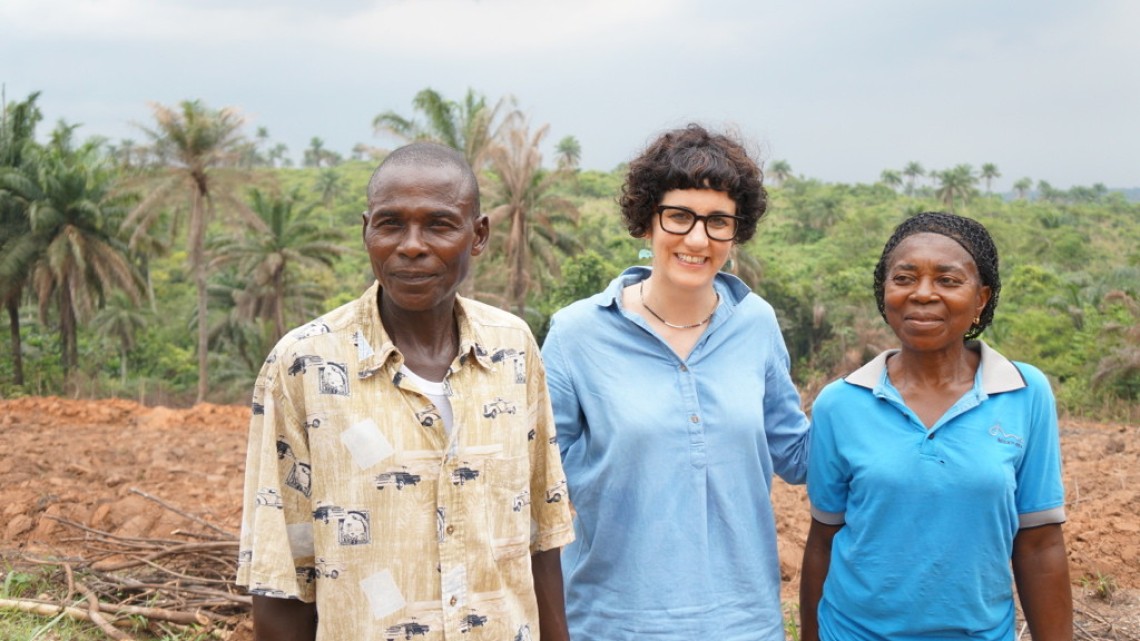
Hale Ann Tufan visits colleagues in Nigeria with NextGen Cassava. Photo provided.
News directly from Cornell's colleges and centers
Hale Ann Tufan: At the nexus of gender equality and ag research
By Kelly Merchan
As a young researcher working with plant breeders to develop improved wheat varieties for smallholder farmers, Hale Ann Tufan confronted a profound dilemma. It wasn’t an issue of gnarly plant genetics or unruly research fields — commonplace-enough issues for any scientist in advanced plant breeding. She faced a deeper, more fundamental issue that went to the core of her discipline and agricultural research for development as a whole.
During her formative training on fungal pathogens that threaten the global wheat supply, Tufan had been taught that crops are developed with a purpose: to grow faster and bigger, to withstand pests and pathogens, or to be best suited for a rapidly changing climate. But in these scientific conversations, the people who were actually growing the crops were only discussed in vague terms.
Even as she shifted from wheat to other crops, the conversations remained the same. It simply was not seen as the role of a biophysical scientist to consider the social heterogeneity of “farmers” they were breeding crop varieties for — yet, the people growing cassava in remote areas of Africa, for example, weren’t faceless, generic farmers.
Read the full story in the CALS Newsroom.
Kelly Merchan is a communications specialist in the Department of Global Development in the College of Agriculture and Life Sciences.
Media Contact
Get Cornell news delivered right to your inbox.
Subscribe
